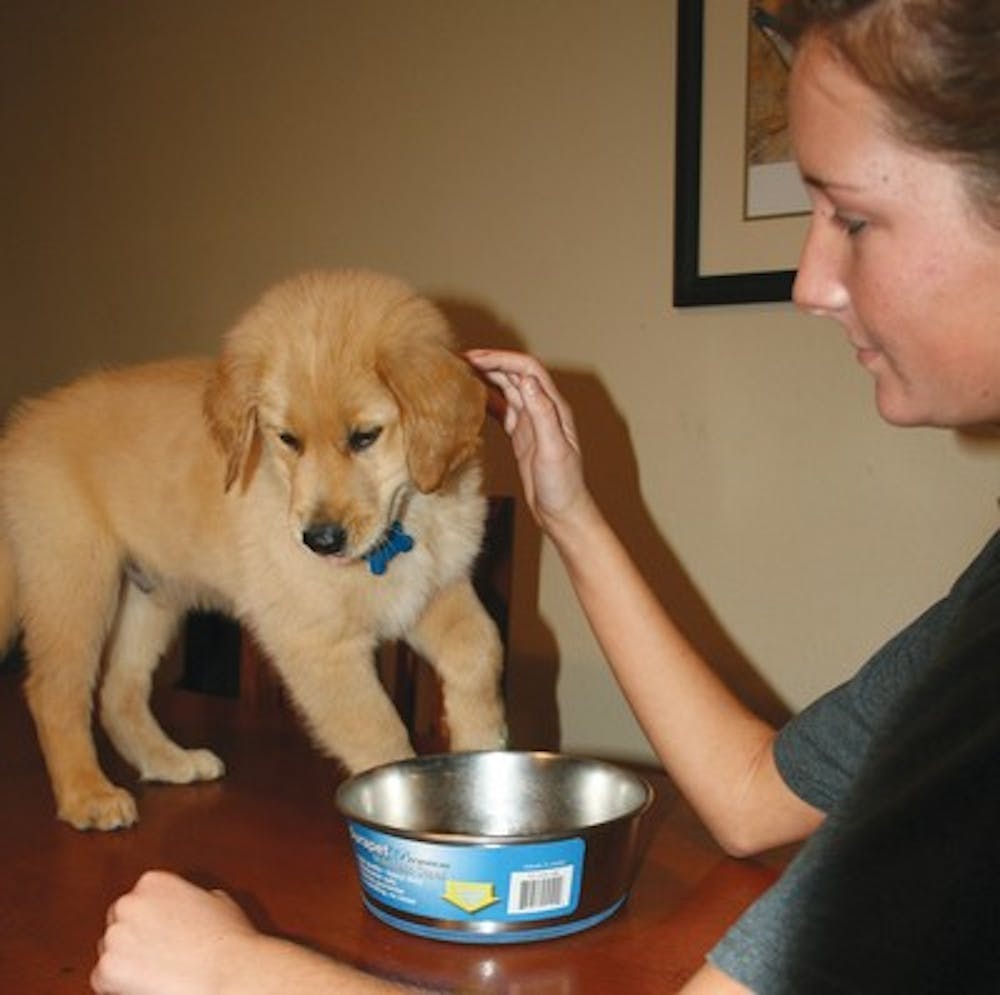Do not feed dogs from the table. Eating chocolate can kill a dog. If a pet eats grass, then it's sick.
All of these are myths about how to take care of an animal, but not all of them are true.
One rumor dog-owner Sharon Oswald has heard is that you are not supposed to feed your dog from the table.
"That makes them beg at the table," said Oswald, head of the Department of Management.
Glen Puckett, a veterinarian at the Village Vet Clinic, said this myth is mostly true.
"You're really not supposed to feed your dog from the table," Puckett said. "It's something that will upset their stomach a lot of times."
Jeanie Greene, a receptionist at Auburn Veterinary Hospital, agrees with Puckett.
"We typically recommend them not to do that because there are certain types of food, like dairy, milk, cheese or anything that's really rich, that could cause stomach upset," Greene said. "Sometimes if it's bad enough it could cause pancreatitis."
Oswald also believes people should not give their pets chocolate.
"Chocolate can kill a dog," Oswald said. "I don't think that's a myth. I think that's the truth."
Puckett said this is true for some types of chocolate, but not all types.
"For the most part, things like milk chocolate usually do not pose a problem in puppy dogs unless you are dealing with a very, very small dog," Puckett said. "It's the chocolates that are more pure, like German baking chocolate and dark chocolate, things like that, that we really run into problems with, and those things can be fatal in dogs."
Another rumor Oswald has heard is you are not supposed to feed milk to animals, including cats.
"Most pets are lactose intolerant," Puckett said. "They don't have the protein enzymes to breakdown milk."
Puckett said Tylenol can also hurt pets.
"It seems like with the advent of the Internet here lately, a lot more people are aware of some of the toxic things in dogs and cats," Puckett said.
Puckett said just because a dog eats grass, it does not necessarily mean it is sick.
"There is a condition called pica that's relatively common to puppies, to young children," Puckett said. "It's basically putting inanimate objects and things in their mouths that they're not supposed to eat, and a lot of people propose that has something to do with the nutritional deficiency or lack of them getting the right amount of nutrients."
Puckett said sometimes eating grass will make them sick, because they are not herbivores like cows, which eat it all the time.
Greene, who has a dog that eats grass all the time, said she doesn't think it indicates anything.
"It's normal dog behavior," Greene said.
Puckett said people come in all the time with common misconceptions about their pets.
He said people often come with home remedies for diseases like scabies and mange.
Some people have used Gatorade and motor oil as cures for some diseases.
"We see anything and everything," Puckett said.
He said many of the remedies stem from rural areas where a lot of people do some veterinary care at home.
"For the most part, I don't see many of them that work," Puckett said. "There's a whole other branch of medicine out there from western medicine, Chinese herbal medicine where people do use natural products, and they do get some success using that, but the home remedy type stuff, the Gatorade and the motor oil and those kinds of things, I rarely see that ever work."
Do you like this story? The Plainsman doesn't accept money from tuition or student fees, and we don't charge a subscription fee. But you can donate to support The Plainsman.




